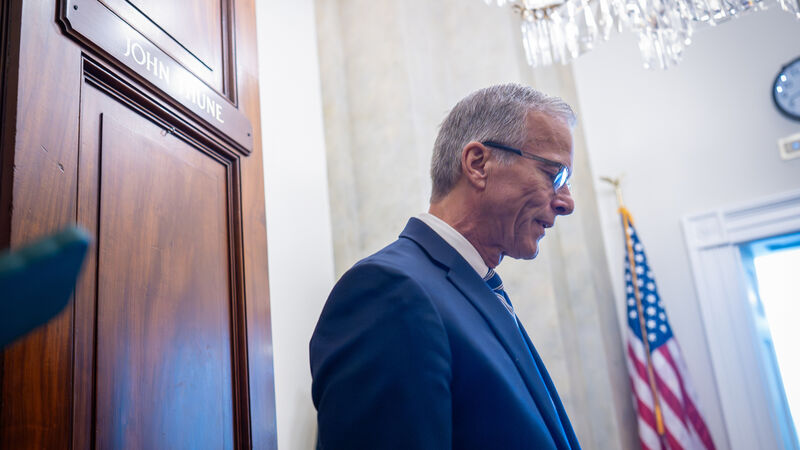US Senate takes first step towards ending the government shutdown

Senate majority leader John Thune (J Scott Applewhite/AP)
The US Senate took the first step to end the government shutdown on Sunday after a group of moderate Democrats agreed to proceed without a guaranteed extension of health care subsidies.
The move angered many in their caucus who say Americans want them to continue the fight.













